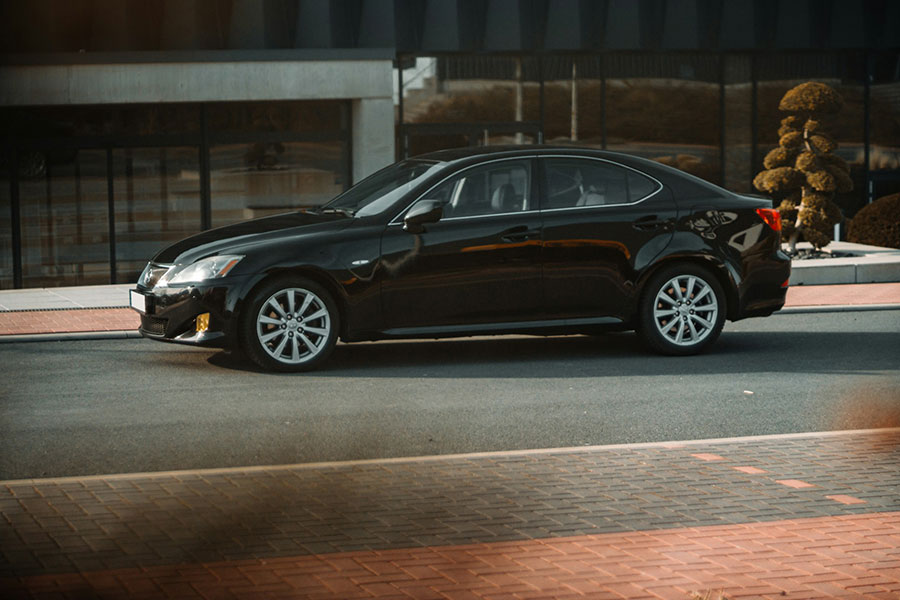
When should you register for VAT?
August 22, 2024
How do you know which VAT scheme is for you?
August 23, 2024Frances Harris
Chief Accountant
Full Accounting Services LTD
Should I Buy or Lease a Company Car, Buy Privately or use the Mileage Allowance?
Deciding whether to buy or lease a company car, purchase privately, or use the mileage allowance can significantly impact your tax efficiency. This post guides you through the tax implications, costs, and benefits of each option, helping you make an informed decision tailored to your business needs.

We are asked this question so many times, I thought it would be best to do a blog post about it.
"Is it more tax efficient to buy or lease a car through my company, buy privately or use the mileage allowance?"
The confusion in this area is not helped at all by all the deals on offer, it can be a minefield, but it is not as complicated as you may think.
Emissions are increasingly important. It is not so long ago that the government was encouraging us all to buy new, fuel-efficient diesel cars, but there has been a rethink, and diesel engines are eventually going to be phased out. We have seen the rise in the last few years of Hybrid and Electric models to replace the Petrol / Diesel models.
The first thing to think about when deciding between all the options are different tax considerations for each scenario. Hopefully this blog post will give you all of the information, so you can make an informed decision for your own personal circumstances.
Buying a car through a Limited Company
A limited company can claim tax relief on a car and there are two main options. You can buy it outright or lease it. Increasing numbers of businesses and indeed private individuals are now plumping for the leasing option.
The good news is, that if you lease a car through your limited company, you can reclaim 50% of the VAT on the lease amounts. (If you are VAT registered on the standard or cash accounting scheme - note not on the flat rate scheme). You can also claim corporation tax relief on the annual lease amount net of VAT.
What is Writing Down Allowance?
If you decide to buy the car then you can claim a WDA (Writing Down Allowance) each year, which is a percentage based on the cost of the vehicle and its CO2 emissions. You will get the best return if the car is new and boasts low CO2 emissions (i.e., 50g/km or less). The full cost of the car can be written off in the first year as an expense in the year it is bought. If the car produces emissions of 50g/km, the rate is 18%, but is just 6% if it is more than 50g/km.
VAT cannot be reclaimed on the cost of the car.
Example: If a limited company buys a car costing £32,000 and the CO2 emissions are 120g/km, the company can claim £32,000 at 18%, which equates to £5,760, plus £5.760 x 19% Corporation Tax, or £1,094. This means it will reduce your corporation tax bill by £1,094 each year.
What about personal tax?
As the owner of a limited company, you are both the director and an employee. The business can claim tax relief on the car, but where do you stand when it comes to using it as a private individual?
If the car is to be used personally, it will be classed as a benefit in kind, and there will be tax payable on your self-assessment for using it. Driving to and from your regular place of work is classed as your ordinary commute and is not considered to be business use by HMRC, which means that even if you use the vehicle solely to travel to and from your workplace, you cannot reclaim the VAT.
You should know that it makes absolutely no difference whether the car was bought outright or is being leased. You might be surprised to learn that that amount of private use is not taken into consideration. It's either applied, or not applied, so unless the car is used strictly only for business and left at the business overnight, you will be taxed for private use.
The percentage applied is based once again on the Co2 emissions of the car, ranging from 37% for a car that consumes high amounts of fuel to a rather more attractive 0% for a hybrid or electric car (depending on Co2 emissions)
Going back to our earlier example of the car that cost your limited company £32,000, if the CO2 emissions are 120g/km, your personal tax rate is 20% (basic rate).
On that £32,000 car your personal tax bill for private use will be £1,600. As we saw earlier, the company saves £1,094 in tax but you have paid £1,600 to use the car privately, a loss of £506. In this example, you are better off buying the car yourself and claiming mileage. Then there is fuel. If your limited company pays for fuel, and you are on its cash accounting scheme, you can reclaim the VAT on the fuel and corporation tax on the cost of the fuel net of VAT.
However, there is a fuel benefit which is calculated using the CO2 percentage. HMRC has a set value for fuel that the percentage is applied to, so the number of miles you travel is largely irrelevant. It's either applied (for private use) or not (strictly business). The set rate for 2021/2022 is £24,600.
Let's say that your limited company pays for all your petrol, the CO2 emissions are 120g/km and your personal tax rate is 20% (basic rate). The tax due is £22,200 x 25% (the % for the CO2 emissions) x 20% tax, so your personal tax bill for the private use of the car is £1,110.
Although you save a little claiming the VAT back on the fuel, the company's gross fuel bill would need to be around £3.330 to get tax relief of £1,110, so unless you are doing a huge number or miles, it's likely the personal tax liability will be larger than the company tax
saving.
When a company buys an asset (and a car is classed as an asset) it is not treated as an expense that can be deducted from profit for tax purposes. Tax relief is obtained through Capital Allowances, which have specific rules as to how much can be claimed. In relation to cars, the amount of Capital Allowances that can be claimed directly correlates to the level of CO2 emissions the car produces. So basically, the more CO2 the car produces, the less tax relief you can claim.
What is the mileage allowance?
The big question for most of us is whether to lease or buy privately. It is often more tax efficient to buy the car personally and claim the mileage allowance, which is 45p per mile for the first 10,000 miles and 25p thereafter. This is a fully tax-deductible expense for the company and has no personal tax implications. Increasing numbers of businesspeople are now switching from a company car to claiming mileage instead as it is more tax efficient.
The easiest way to reimburse yourself and employees for business travel is by sticking to HMRC's tax-free mileage allowances. This allows employees to be reimbursed up to 45P per mile for the first 10,000 business miles, in any given tax year using a private vehicle and 25p per mile for any business mileage thereafter. Provided there are accurate mileage records for business travel this amount will be tax free.
An electric/ hybrid car has a benefit in kind of only 0% (if hybrid vehicles with emissions from 1-50g/km and a pure electric range of over 130 miles) .and, obviously, there is no fuel benefit to pay for electric cars. The government has reduced the percentage to specifically encourage us to buy electric cars, and there could be more incentives on the way. Improvements are constantly being made in this area by the car manufacturers, who want their products to be more attractive to us.
So, for a 0% car with a list price of £45,000, the company would get tax relief on the full amount in the first year, saving an impressive £8,550 in corporation tax. In other words, it is tax efficient to buy the car through the company.
There are all sorts of other variables you need to consider. If you doubt it, pick a specific car, model and annual mileage then go online and check out the leasing options. Dealers
are of course desperate for your business, so you may find that you can actually buy a car with a list price of, say, £35,000 for a figure more like £27,000. What a deal!!




